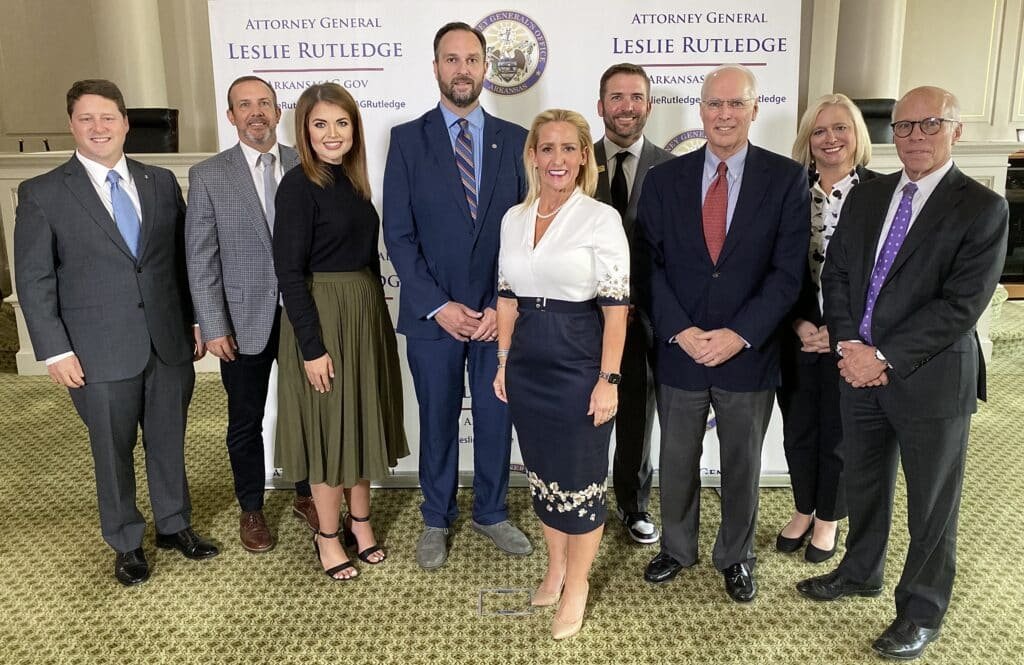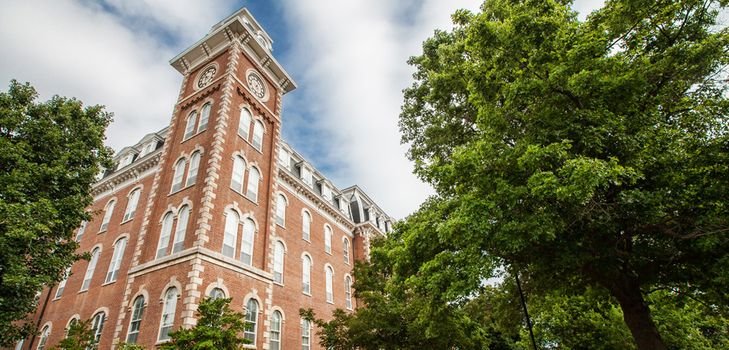Looney, cattle improvement extension specialist and researcher with the Arkansas Agricultural Experiment Station, received the Producer Education Award from the Arkansas Cattlemen’s Association in late July for his contributions to the furtherment of cattle producer education in Arkansas.
His Work
Looney and other researchers focused on improving the genetics of beef cattle, promote artificial insemination as the most straightforward method. This technology has been around since the 1950s but is used by less than 5 percent of producers in the country, Looney said.
“It is by far the most powerful technology of bringing in new genetics,” Looney said. “So, some of the bulls you can obtain frozen semen from have values of more than $100,000. Typical farmers couldn’t afford to pay for that type of bull, but they could use those genetics from artificial insemination.”
Incorporating genes that correlate to higher quality cattle are one of the desired outcomes of artificial insemination, Looney said as an example.
Alongside his research on artificial insemination are his more recent projects of estrous synchronization, a process that syncs cows’ reproductive cycles and can allow for the artificial insemination of many cows at once.
Looney and his team have been testing the process for three years at the Savoy Research Complex near Fayetteville, the Livestock and Forestry Research Station in Batesville, and the Southwest Research and Extension Center in Hope. They administer veterinary approved pharmaceuticals that affect the cows’ estrous cycles and then artificially inseminate the cows with conventional or sexed semen.
Through these efforts, the researchers have been able achieve more than 50 to 60 percent success on the first day of the 60-day breeding season. If cows become pregnant early on, they calve sooner and wean with heavier calves. Calves are sold by weight, so it leads to a higher profit if they wean heavier, Looney said.
The high rates of pregnancy are also important because it can take about $600-$800 per year to take care of a cow, Looney said. That includes forage fertilizer, insurance on the land, feed, and more.
“If that cow doesn’t have a calf, and you don’t know it until after the time of calving, you spent all that money for nothing,” Looney said.
Through his extension work, Looney also demonstrates how to use an ultrasound to determine pregnancy in cattle. He said when many farmers see the developing calves, they are motivated to plan ahead and use better management practices. Blood tests that work similarly to a human pregnancy test are other tools Looney demonstrates to determine pregnancy in the cattle.
Though Looney wants many people to adopt his practices, he is aware that it is not feasible for some cattle producers in Arkansas.
The process of estrous synchronization takes multiple handlers and facilities. But overall, the procedures lead to sustainable practices for the cattle producers. And to Looney, that means being a good steward of the land while also being able to remain in the business, have a legacy and be profitable in the present.
Looney said profit for cattle producers is the top priority of his research program, noting how tough the cattle business is.
His Award
The Producer Education Award is presented yearly to highlight and show appreciation to the people leading the Arkansas cattle industry forward. Cody Burkham, the executive vice president of the Arkansas Cattlemen’s Association, said he appreciates Looney’s impact on Arkansas cattle producers.
“Dr. Looney’s knowledge and expertise in cattle genetics have impacted Arkansas cattle producers exponentially,” Burkham said. “We are grateful to have someone of his caliber working to better producers’ operations and cattle in our state.”
Mike Looper, department head of animal science for the Division of Agriculture and the Dale Bumpers College of Agricultural, Food and Life Sciences at the University of Arkansas, said he is always appreciative when the outstanding faculty in animal science get recognized for their efforts to support animal agriculture.
“Dr. Looney thoroughly enjoys working with producers with an eye toward increasing reproductive efficiency in our state beef herd,” Looper said. “Congratulations to Dr. Charles Looney. Well deserved!”
An Arkansas native, Looney worked in the bovine transfer industry in Texas for 30 years before returning to work for the Division of Agriculture in 2018.
“My number one job every morning when I get up is trying to figure out how to help these guys and gals do better in their cattle breeding programs and their overall lives,” Looney said.
“I’m just real humbled to be able to serve the people of Arkansas.”
To learn more about Division of Agriculture research, visit the Arkansas Agricultural Experiment Station website: https://aaes.uada.edu/. Follow us on Twitter at @ArkAgResearch. To learn more about the Division of Agriculture, visit https://uada.edu/. Follow us on Twitter at @AgInArk.





















